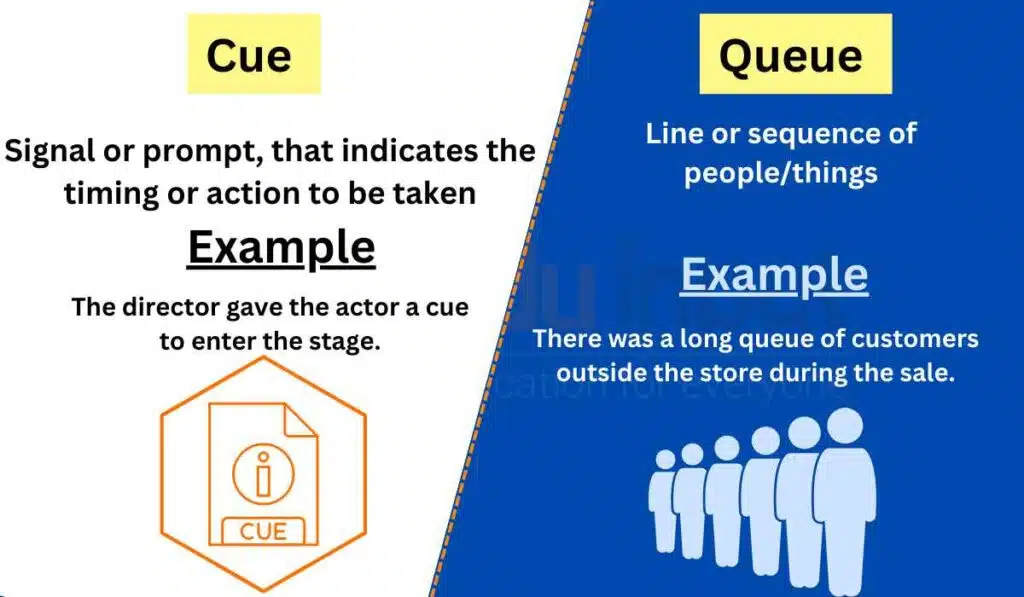Cue vs. Queue-Difference between and Examples
The words “cue” and “queue” sound similar but have distinct meanings. “Cue” refers to a signal or prompt, while “queue” means a line or sequence of waiting.
In this article, we will explore the meanings of “cue” and “queue,” provide examples to illustrate their usage, and highlight the differences between the two. Let’s dive into the nuances of “cue” and “queue.”

Meanings and Examples
Cue Meaning
Noun: The meaning of “cue” is a signal or prompt that signifies the appropriate timing or action to be carried out, commonly utilized in various contexts such as performances, sports, or communication.
Cue Examples
- The director gave the actor a cue to enter the stage.
- The sound of the bell served as a cue for the contestants to start the race.
- He took a deep breath as a cue to begin his presentation.
- The comedian used clever cues to engage the audience and elicit laughter.
- In billiards, the cue is used to strike the ball and aim for the pockets.
Queue Meaning
Noun: The meaning of “queue” is a line or sequence of individuals or objects waiting in order for their turn to come.
Queue Examples
- There was a long queue of customers outside the store during the sale.
- We joined the queue for tickets to the concert.
- The queue at the airport security checkpoint moved slowly.
- The students formed a queue outside the classroom.
- She patiently waited in the queue for her turn at the cashier.
Differences Between Cue and Queue
Here are the main Differences Between Cue and Queue:
| Criteria | Cue | Queue |
|---|---|---|
| Meaning | Signal or prompt | Line or sequence of people/things |
| Usage | Performance, sports, communication | Waiting in line or forming a sequence |
| Function | Indicating timing or action | Organizing order and priority |
| Examples | Director’s cue, racing cue, billiards cue | Queue of customers, ticket queue, security queue |
Usage in a Paragraph
In various contexts, cues and queues play distinct roles. In performances, cues are essential for coordinating actions and timing among actors, musicians, or participants. A cue can be a verbal or non-verbal signal that prompts someone to perform a specific action. On the other hand, queues refer to lines or sequences of people or things, often seen in situations where waiting and organization are necessary. Queues help maintain order, ensure fairness, and establish a sense of priority among individuals. Whether it’s waiting in line for tickets, boarding a plane, or entering a venue, queues provide structure and help manage the flow of people or objects.



Leave a Reply